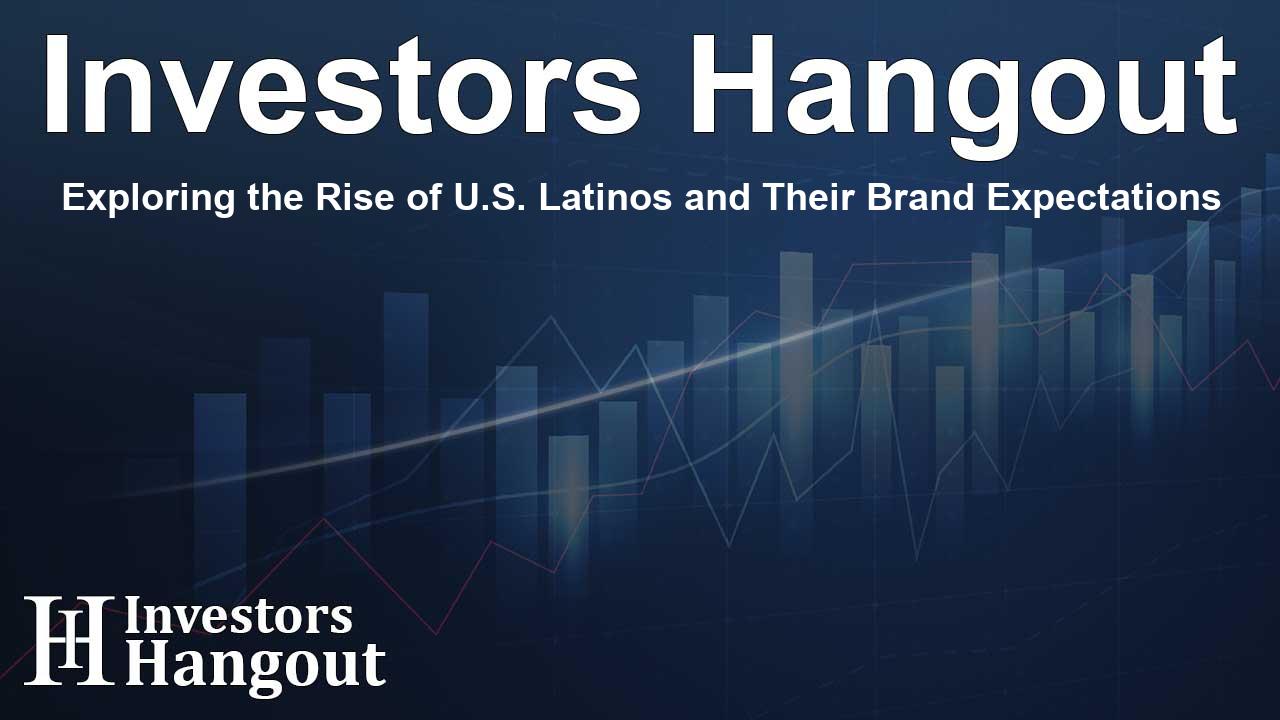Exploring the Rise of U.S. Latinos and Their Brand Expectations

U.S. Latinos: A Shifting Landscape in Brand Awareness
A recent study reveals that U.S. Latinos represent a vibrant and growing consumer group that is becoming increasingly self-aware and assertive in their cultural contributions. This demographic, which drives an impressive economic output, is splashed across the landscape as a significant potential marketplace for brands willing to engage authentically. Latinos now contribute an astounding $4.1 trillion to the economy and are set to rank as the fourth-largest economy in the world by a near-future date. However, their expectations from brands are evolving dramatically.
The Recognition Recession
According to the Hispanic Sentiment Study 2025, Latinos feel a disconnect from brands and media, a phenomenon termed as a Recognition Recession. As their confidence in their unique economic and cultural role strengthens, so does their disappointment in how brands are recognizing these contributions. The study highlights that while 77% of Latinos now proudly acknowledge their positive impact on American society—an impressive increase from previous years—this self-acknowledgment has not been matched by corresponding recognition from brands.
Key Statistics from the Study
The findings from the study present several noteworthy statistics:
- 84% of Latinos are inclined to support brands demonstrating a positive impact in their families or communities.
- 65% are more likely to remember brands that consistently engage with them.
- Nearly half of Latino respondents, particularly 79% among college-educated individuals, prefer brands that communicate in Spanish.
This new study indicates a golden opportunity for brands to tap into this demographic successfully by aligning their messaging and values with the aspirations of the Latino community.
Trust Issues in Brand Engagement
Despite the economic power wielded by Latinos, a growing sentiment of mistrust exists between them and the brands they consume. The statistics reveal a startling fact: only 32.5% of Latino respondents feel that brands truly reflect their values, a significant decline indicating that brands need to adapt to remain relevant. For media, trust levels also tell a concerning story; only 30.7% express trust in news sources while a more favorable view is held for local businesses over larger corporations.
The Changing Perception of the American Dream
Another striking finding is the perception of the American Dream among Latinos. A rising number—nearly 48%—believe that the promise of this dream is deteriorating. This marks an increase from earlier findings and highlights a broader, worrying trend of distrust within government and media institutions.
Claudia Romo Edelman, Founder of We Are All Human Foundation, emphasizes that the conversation surrounding investment in Latino communities should emphasize genuine marketing efforts rather than pigeonhole them into diversity and inclusion boxes. She articulates that investing in this demographic aligns with smart marketing strategies aimed at a robust, economically powerful, and growing community.
The Path Forward for Marketers
Brands that show up authentically can create lasting connections with Latino consumers who are not merely waiting for recognition but are eager for authenticity and engagement. As Juliana Gomez from TelevisaUnivision mentions, meaningful investments translate into substantial growth, positioning brands favorably in a vibrant economic future.
For marketers, this moment is more than just tapping into an underrepresented market. It signifies an opportunity to weave deeper narratives that respect and celebrate Latino culture and economic contributions.
Frequently Asked Questions
What is the Hispanic Sentiment Study 2025?
The Hispanic Sentiment Study 2025 assesses Latino self-awareness and their expectations from brands, showcasing a disconnect between consumer expectations and brand commitments.
Why do U.S. Latinos feel ignored by brands?
Despite their significant economic contributions, many Latinos feel that brands do not reflect their values or recognize their cultural impacts, leading to a growing sense of mistrust.
What is a 'Recognition Recession'?
A 'Recognition Recession' refers to the declining trust and acknowledgment that Latinos are experiencing from brands and media, reflecting a gap between their contributions and brand engagement.
Why is trust in brands declining among Latinos?
The study points out that only about 32.5% of Latinos believe brands reflect their values, indicating a need for brands to understand and connect more deeply with this consumer group.
How important is the Spanish language in brand communication?
A significant portion—nearly 79%—of college-educated Latinos express a preference for brands that communicate in Spanish, highlighting the importance of cultural relevance in brand messaging.
About The Author
Contact Olivia Taylor privately here. Or send an email with ATTN: Olivia Taylor as the subject to contact@investorshangout.com.
About Investors Hangout
Investors Hangout is a leading online stock forum for financial discussion and learning, offering a wide range of free tools and resources. It draws in traders of all levels, who exchange market knowledge, investigate trading tactics, and keep an eye on industry developments in real time. Featuring financial articles, stock message boards, quotes, charts, company profiles, and live news updates. Through cooperative learning and a wealth of informational resources, it helps users from novices creating their first portfolios to experts honing their techniques. Join Investors Hangout today: https://investorshangout.com/
The content of this article is based on factual, publicly available information and does not represent legal, financial, or investment advice. Investors Hangout does not offer financial advice, and the author is not a licensed financial advisor. Consult a qualified advisor before making any financial or investment decisions based on this article. This article should not be considered advice to purchase, sell, or hold any securities or other investments. If any of the material provided here is inaccurate, please contact us for corrections.
